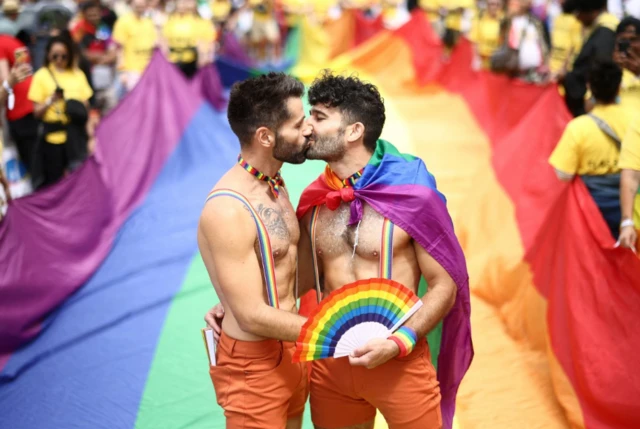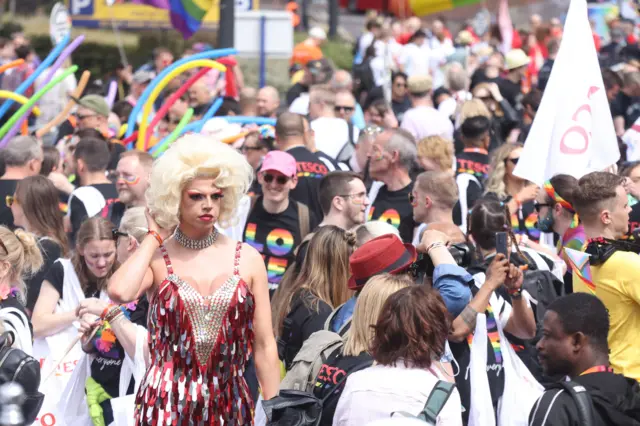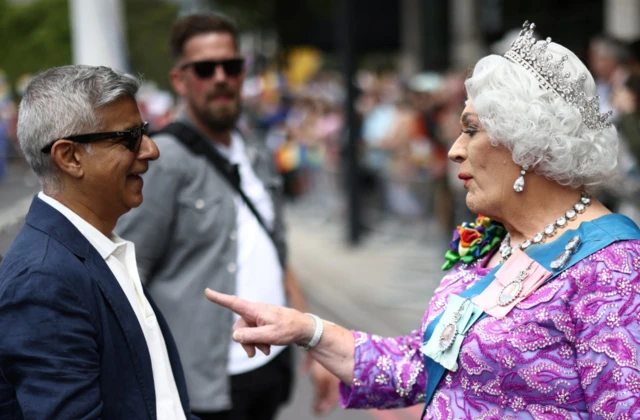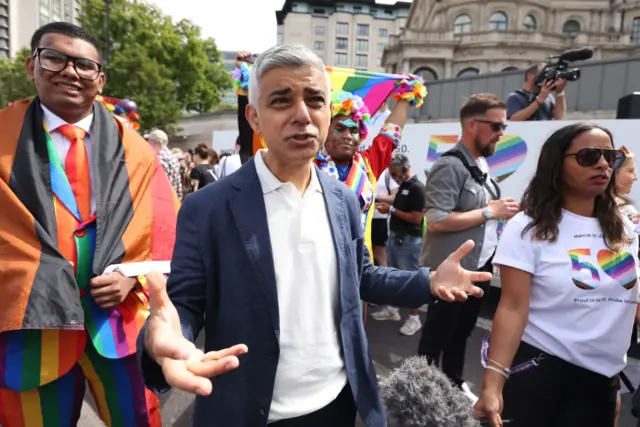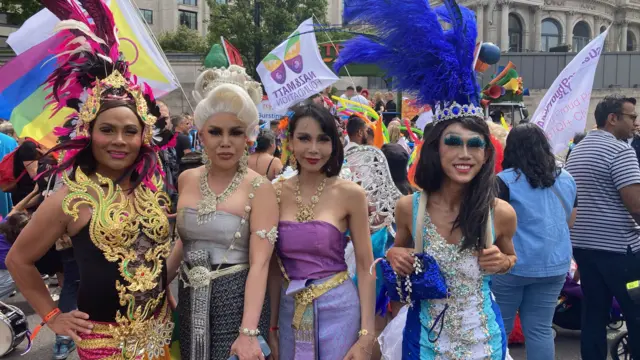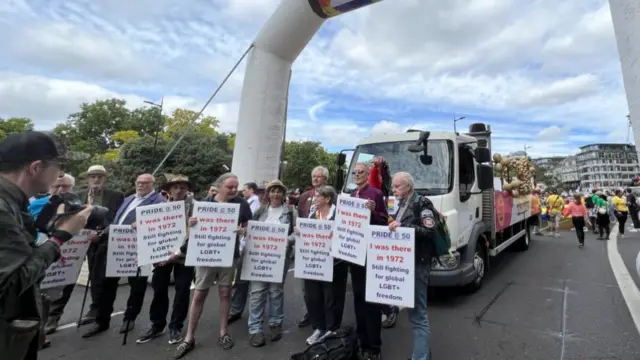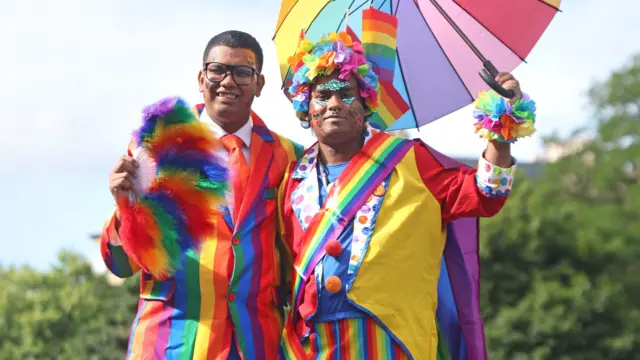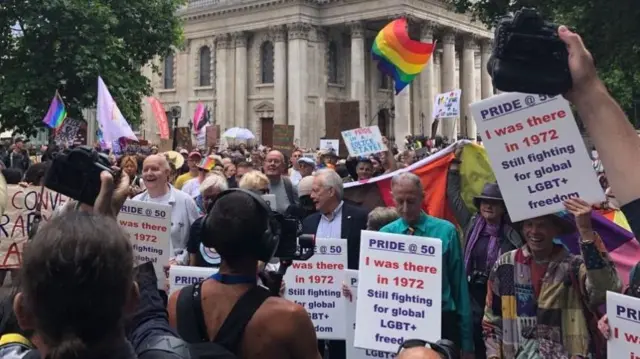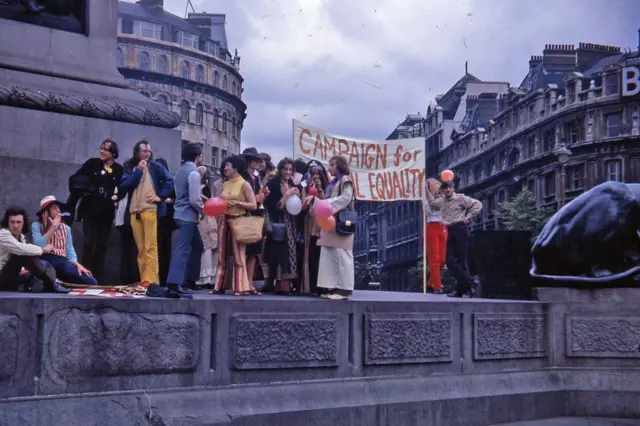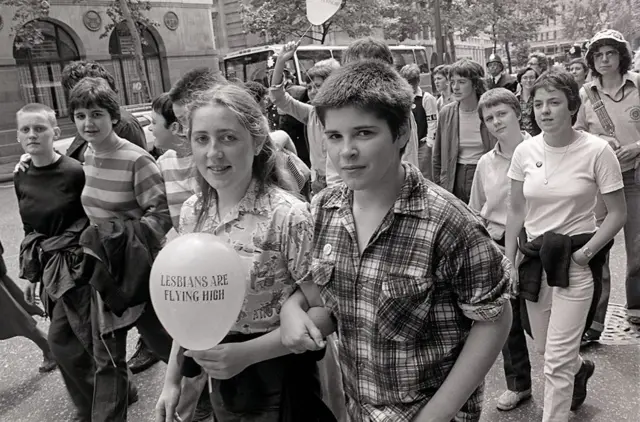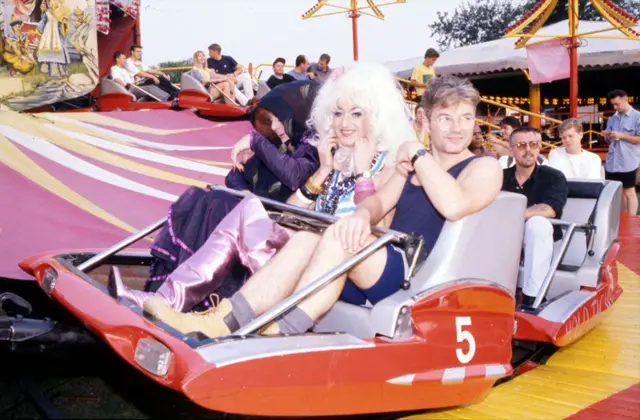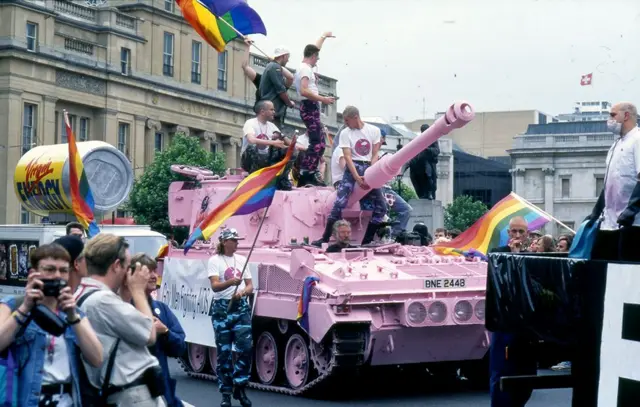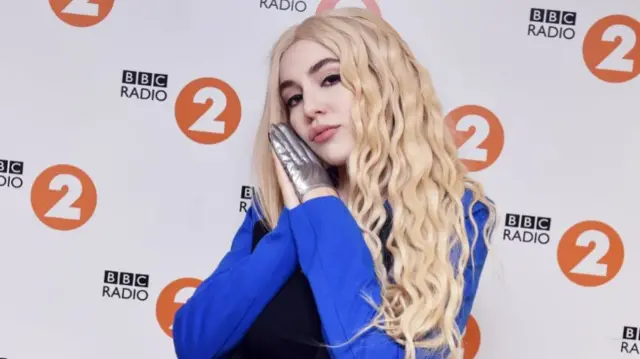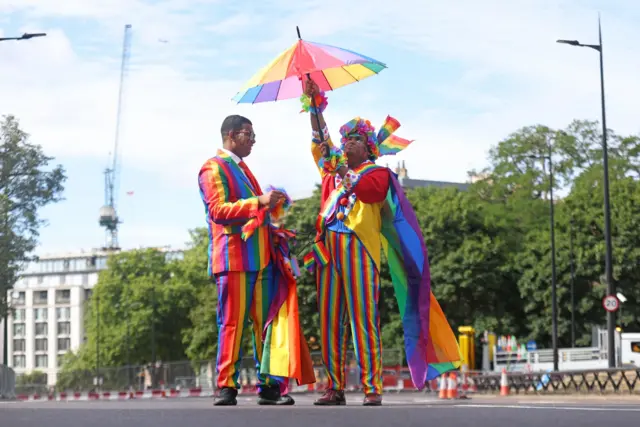Pride in 2022 is still a protest for equality and changepublished at 13:13 BST 2 July 2022
 Lauren Moss
Lauren Moss
BBC LGBT & Identity Correspondent
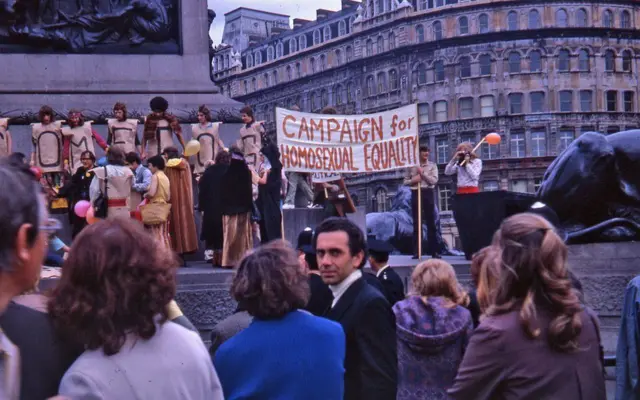 Image source, BRIAN HART, CHE ARCHIVES, BISHOPSGATE INSTITUTE
Image source, BRIAN HART, CHE ARCHIVES, BISHOPSGATE INSTITUTEThe first UK Gay Pride Rally, in Trafalgar Square, central London, in 1972
In Trafalgar Square in 1972 a group of teenagers and young adults stood with placards on Nelson's Column, taking a stand to be proud of who they were.
They shouted chants like “5,6,7,8, gay is just as good as straight” - at a time when homosexuality was still classified as a mental illness and they faced arrest for kissing each other in the street. There was just a few hundred of them.
Today, Trafalgar Square is full of stages and big screens where around 30,000 people will march to and party, remembering what those young members of the Gay Liberation Front started half a century ago - a movement that is now held all over the UK and more than 100 countries.
Pride in 2022 is a celebration of the hard fought rights won in the LGBT community - civil partnerships, gay marriage, being allowed to serve in the military and the Equality Act. It’s become very commercial, with big businesses involved and rainbows banners everywhere, in what some feel takes away from what Pride stands for.
But at its heart it’s still a protest for equality and change. Homosexuality continues to be criminalised in about 70 countries, trans rights are fought over both within and outside of the community and the UK’s first global LGBT conference, which was due to coincide with 50 years of Pride, was cancelled earlier this year after many charities pulled out over the government’s position on a Bill to ban Conversion Therapy.
The Roe V Wade decision in the USA has many concerned about the potential scaling back of rights for LGBT people too, in the states and elsewhere hate crime and persecution is sadly a reality that many still face even in the 21st century.
In 1972 members of the Gay Liberation Front marched to be seen. They said they wanted to change society - not fit in with it.
Today they, along with tens of thousands of others, are marching again for that same opportunity.
